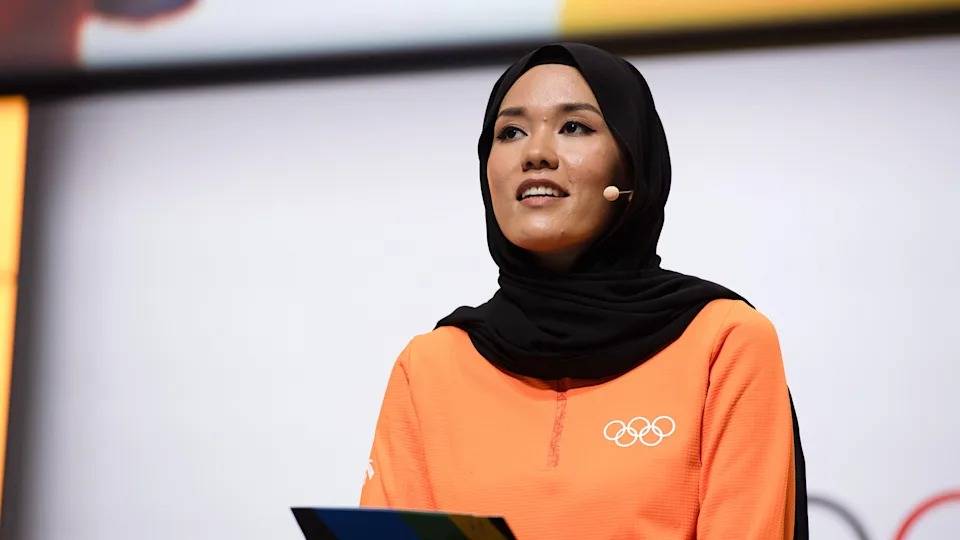February 14, Colombo (LNW): In the ever-changing landscape of our world, marked by both conveniences and challenges, the International Olympic Committee (IOC) assumes a complex role in preserving the essence of sports amidst political and social transformations. The IOC’s responsibility extends beyond promoting fair play and competition; it involves adapting to societal shifts while upholding the integrity of sports.
As the world witnesses scientific advancements and evolving definitions of diversity, the IOC steps in to champion the rights of athletes, ensuring they can participate authentically. An example of this commitment is evident in the case of Laurel Hubbard, who made history as the first trans woman to represent women’s weightlifting at the Tokyo Olympics. The IOC’s recognition of scientific realities and its dedication to fairness shine through such decisions.

Moreover, the IOC addresses crises related to the advantages gained by female athletes with male hormone levels. In cases of transition, the committee advocates for scientific solutions, such as administering hormones to balance hormonal levels. This approach allows athletes like Caster Semenya to compete authentically without suppressing their abilities, showcasing the IOC’s commitment to managing sports human resources with sensitivity.
Crucially, the IOC represents a global community, transcending borders and ethnicities. The establishment of the Refugee Olympic Team, in collaboration with the United Nations High Commissioner for Refugees, exemplifies the IOC’s dedication to inclusivity. By providing a platform for athletes facing political or social disasters, the IOC reinforces the Olympic symbol of unity represented by the five rings.

Caster Semenya
In preparation for the Paris 2024 Olympics, a team of 66 athletes, representing 12 sports, will carry the Olympic flag as the Refugee Team. The team leader, Masomah Ali Zada from Afghanistan, symbolizes resilience and embodies the spirit of overcoming challenges.

Masomah Ali Zada
Beyond refugee athletes, the IOC navigates complex geopolitical scenarios, allowing athletes from countries facing political transitions, international sanctions, or suspensions to compete under the Olympic flag. Notable instances include athletes from Kuwait and the Federal Republic of Yugoslavia participating under the Olympic flag during bans or UN sanctions.

Fehaid Al-Deehani
Despite geopolitical tensions, the IOC continues to prioritize humanitarian aid, extending support to refugee camps and welfare facilities. In response to the Russian attacks in Ukraine, the IOC has provided significant humanitarian aid, demonstrating a commitment that goes beyond the realm of sports.
In a recent decision, the IOC approved the participation of Russian and Belarusian athletes in the Olympics, despite protests, showcasing a delicate balance between sports and geopolitical crises. This decision is not an endorsement of war but an invitation to athletes to remain engaged in sports despite challenging circumstances.

In the face of global challenges and crises, the IOC stands as a beacon of humanity, making decisions that prioritize the rights of athletes, inclusivity, and a commitment to a world united through sports.

